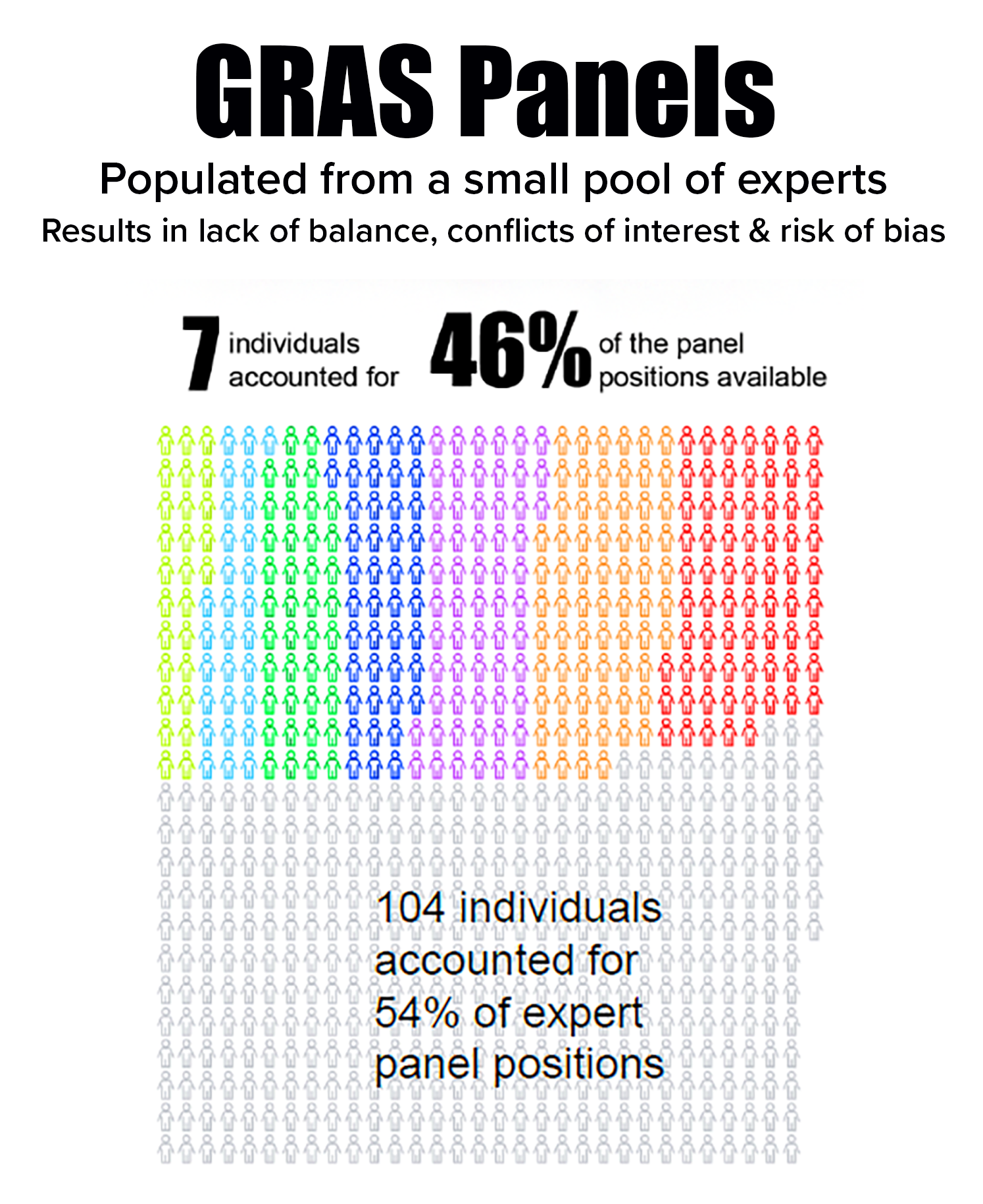Richard Denison, Ph.D., is a Lead Senior Scientist.
 Today Environmental Defense Fund, Earthjustice, Natural Resources Defense Council, Physicians for Social Responsibility, and Union of Concerned Scientists filed comments on EPA’s list of nominees for appointment to its Science Advisory Committee on Chemicals (SACC). The SACC conducts peer reviews of chemical risk evaluations EPA conducts under the Toxic Substances Control Act (TSCA). EPA can rectify this sad state of affairs by excluding these and any other conflicted individuals under consideration from membership on the SACC when EPA adds new members.
Today Environmental Defense Fund, Earthjustice, Natural Resources Defense Council, Physicians for Social Responsibility, and Union of Concerned Scientists filed comments on EPA’s list of nominees for appointment to its Science Advisory Committee on Chemicals (SACC). The SACC conducts peer reviews of chemical risk evaluations EPA conducts under the Toxic Substances Control Act (TSCA). EPA can rectify this sad state of affairs by excluding these and any other conflicted individuals under consideration from membership on the SACC when EPA adds new members.
Our comments identified 19 nominees that have serious actual or potential conflicts of interest that should disqualify them from being appointed to the SACC. Unfortunately, their inclusion in EPA’s list of nominees suggests either that EPA has not conducted even the most cursory of conflict-of-interest screenings of these nominees, or that the agency intends to flout conflict-of-interest concerns and skew the balance of its science advisors even further in its drive to prioritize the interests of industry over public health and environmental protection. The most recent example of this is EPA’s appointments or elevation of members on the agency’s Science Advisory Board earlier this month.
Over the past several months, EPA received a slew of nominations for SACC membership of individuals that are employed either by companies with direct financial interest in specific chemicals or related science policy issues that fall within the remit of the SACC, or by consulting firms hired by those companies or their trade associations to represent their interests before EPA.
As extensively documented in the comments we submitted today, these individuals should not be appointed to the SACC because they trigger one or both of the federal requirements for excluding individuals from membership on federal advisory groups: having potential or actual conflicts of interest, or creating an appearance of a lack of impartiality. Read More











